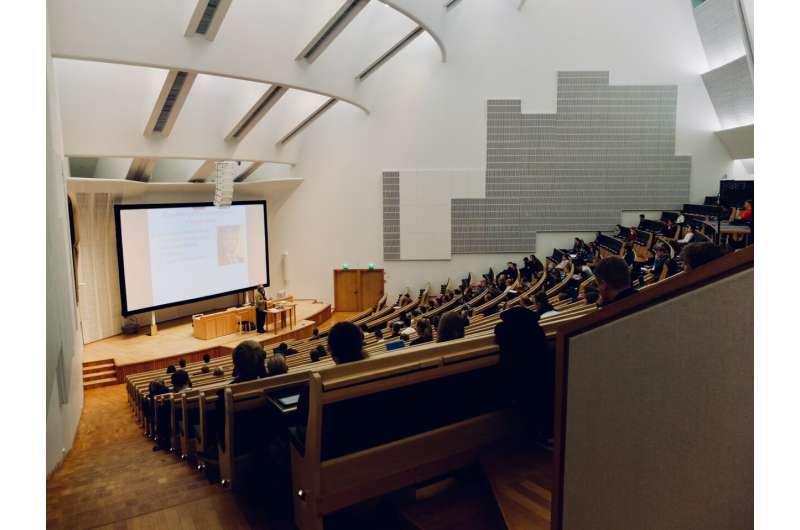This article has been reviewed according to Science X's editorial process and policies. Editors have highlighted the following attributes while ensuring the content's credibility:
fact-checked
trusted source
proofread
Generative AI already being used in majority of college classrooms, according to new survey

A new report from Wiley suggests that generative artificial intelligence (AI) is already being used in the majority of college classrooms—and that number could climb quickly.
The majority (58%) of college instructors who responded to Wiley's recent survey say they or their students are already using generative AI in their classrooms, according to the company's new report, "Higher Ed's Next Chapter, 2023–2024." And another third of those who aren't say they'd consider using it in the future.
More than 60% of instructors are somewhat or very familiar with generative AI tools.
"The whirlwind that is generative AI has swept across our college campuses with remarkable speed, and there's no going back," said Smita Bakshi, senior vice president of academic learning at Wiley. "It's important for college instructors to educate themselves and their students on effective and appropriate use of this new technology in the classroom."
Generative AI's growth is happening quickly, and respondents expect that trend to continue. Two-thirds of instructors say they expect their program or department will use more technology over the next three years, and nearly six in ten anticipate AI-based tools, virtual/augmented reality, or courseware with flexible assignment types will be important in delivering their courses three years from now.
The quick adoption of AI technology does not come without its concerns. Just around one third of instructors say they feel somewhat or very positive about AI usage. The large majority believe it will allow students to cheat more easily and make it harder to detect cheating. More than six in ten are looking for new ideas and solutions to address these concerns.
A recent study from zyBooks and the University of California suggested that simple, low-effort methods can help reduce cheating in college courses, such as discussing academic integrity with students early in the course, requiring an academic integrity quiz, and demonstrating anti-cheating tools the instructor has available.
The rise of technology and AI is one of four emerging trends in higher education identified in the report. The other three trends are:
- Students are concerned that they're not well prepared for their post-graduation lives.
- Students are searching for meaningful careers.
- Instructors are prioritizing student needs despite challenges of their own.
Some data on AI were generated in an August 2023 survey consisting of responses from 1,078 instructors in North America from various disciplines (including business, math, science, psychology, and technology). Other data were gathered in August 2022 in a survey of 2,452 instructors.
Provided by Wiley





















